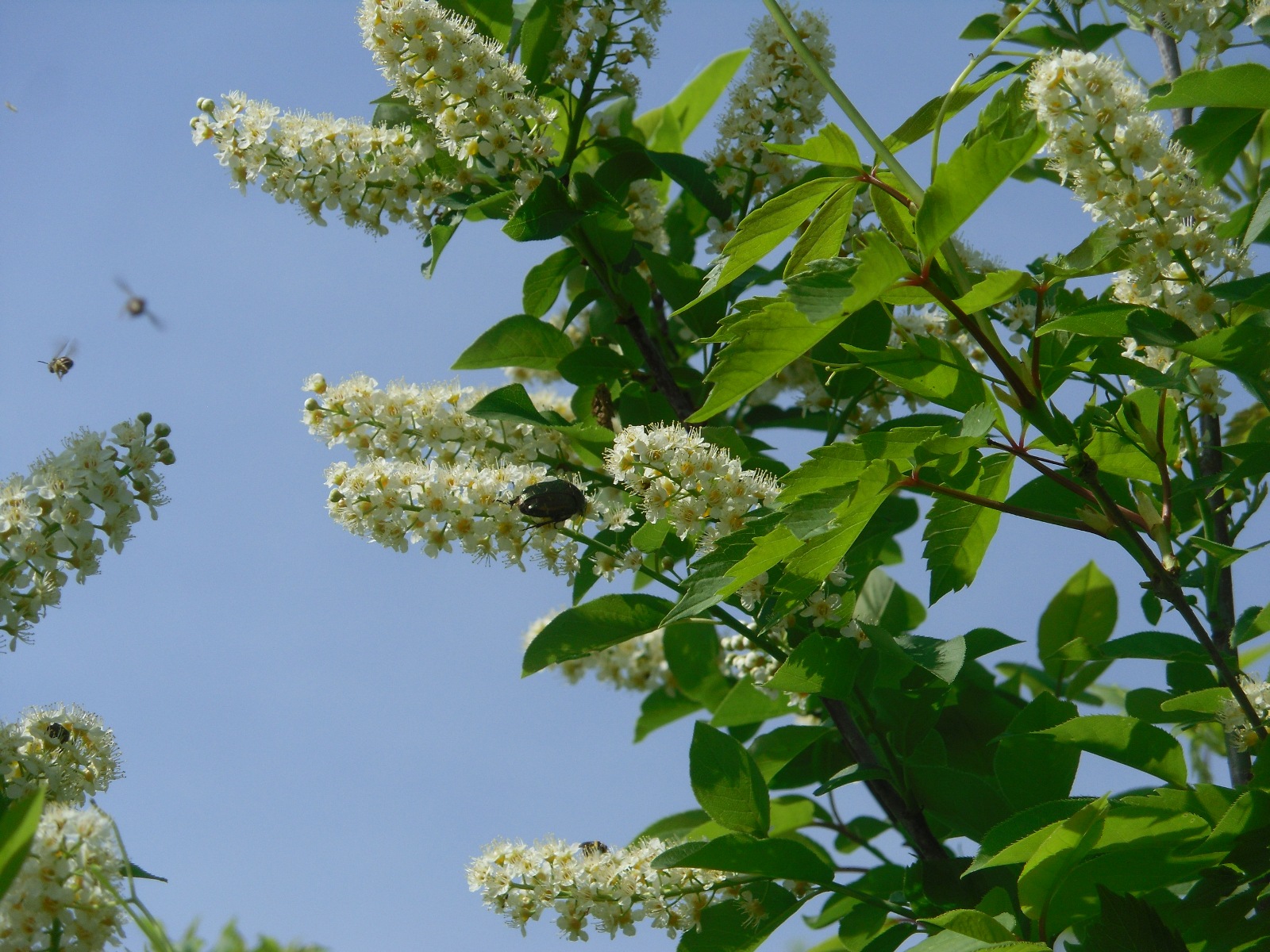Prunus padus
Bird cherry
Species Tolerances
- Drought Tolerance: Low
- Shade Tolerance: Yes
- Waterlogging Tolerance: High
- Frost Tolerance (trees from warmer climates may be frost tolerant, but their flowers may not be): Yes
- RHS Hardiness: H6
- Optimum Conditions for Growth:
A small tree, it prefers moist or damp sheltered sites that are alkaline or only slightly acid, often found near watercourses, not fussy as to soil texture. Not tolerant of drought or extremely hot conditions. Suited to the wetter north-western parts of the British Isles. - Susceptibility to Pest/Disease:
Not of note at present in the UK

Prunus padus in Saratov Oblast Russia/ ИринаЯ/ https://creativecommons.org/licenses/by-sa/4.0/deed.en
Service to Pollinators
- Summary of Service to Pollinators:
An excellent source of nectar and pollen just before the ‘June gap’ for all pollinators. Honeydew also produced when aphids are active - Nectar Value to Pollinators: 3 (of 0-3)
- Honeydew Value to Pollinators: 1 (of 0-3)
- Pollen Value to Bees: 3 (of 0-3)
- Flowering Period: May
Risks
- Human Toxicity: Toxic
- Livestock Toxicity: Toxic
- Invasive Risk: No
- Suckering: Yes
Products
- Edible Fruit: Yes
- Edible Leaves: No
- Edible Sap: No
- Edible Seeds: No
- Honey, major source in UK: Yes
- For any medicinal potential, see 'Further Details' below.
- Timber: Yes
- Livestock Fodder: No
- Other Products:
Has been used in cabinet making but not generally grown for timber. Fruits are bitter due to small quantities of Hydrogen cyanide which dissipates after boiling
Utility
- Nitrogen Fixation: No
- Organic Matter Accumulation: Yes
- Phytoremediation: Insufficient Data
- Deacidification: Insufficient Data
- Windbreak: No
- Soil Erosion Control: Yes
- Shade or Shelter: Insufficient Data
- Plant Support: Yes
- Integrated Pest Management: Insufficient Data
- Wildlife Value: Yes
- Wildlife Value Summary:
Good for biodiversity referring to invertebrate diversity feeding on the tree, especially insects. Honeydew produced when aphids are active, provide nectar for many insects. Fruit are available to a large range of birds and mammals. - Graduated Nativeness Classification ⓘ: 1 (of 1-10)1. Historic Native
2. Historic Introduction
9. Neutral Introduction
Further Details
Suckering is very slow even after maturity, therefore unlikely to cause any negative impact. Currently the most northerly and montane of the prunus group. A mast tree, fruiting well every 2-3 years.